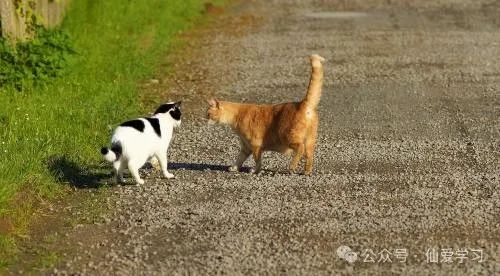【张兆华】0925《心理赛道获客变现训练营》第03期听课链接(^_-):nzc890
我学了,感觉非常不错,受益匪浅!
需要的宝子+\\/♥:nzc890
相关其他课程都有:咨询方式♥V:nzc890



hey did not tell their lords. They melted down jewels and sold them piecemeal to Jews for Jews' prices, and what they did not recognise as precious they wantonly destroyed. I have seen the marble heads of heathen gods broken with the hammer to make mortar of, and great cups of onyx and alabaster used as water troughs for a thrall's mongrels. . . . Knowing the land, I sent pedlars north and west to collect such stuff, and what I bought for pence I sold for much gold in the Germanies and throughout the French cities. Thus Willebald amassed wealth, till it was no longer worth his while to travel the seas. We lived snug in Flanders, and our servants throughout the broad earth were busy getting us gear."
The Cluniac was all interest. The making of money lay very near the heart of his Order. "I have heard wondrous tales of your enterprise," he told her. "I would fain know the truth."
"Packman's tricks," she laughed. "Nevertheless it is a good story. For I turned my eyes to the East, whence come those things that make the pride of life. The merchants of Venice were princes, and it was in my head to make those of Bruges no worse. What did it profit that the wind turned daily the sails of our three hundred mills if we limited ourselves to common burgher wares and the narrow northern markets? We sent emissaries up the Rhine and beyond the Alps to the Venice princes, and brought hither the spices and confections of Egypt and the fruits and wines of Greece, and the woven stuffs of Asia till the marts of Flanders had the savour of Araby. Presently in our booths could be seen silks of Italy, and choice metals from Innsbruck, and furs from Muscovy, and strange birds and beasts from Prester John's country, and at our fairs such a concourse of outlandish traders as put Venice to shame. 'Twas a long fight and a bitter for Willebald and me, since, mark you, we had to make a new road over icy mountains, with a horde of freebooters hanging on the skirts of our merchant trains and every little burg on the way jealous to hamper us. Yet if the heart be resolute, barriers will fall. Many times we were on the edge of beggary, and grievous were our losses, but in the end we triumphed. There came a day when we had so many bands of the Free Companions in our pay that the progress of our merchandise was like that of a great army, and from rivals we made the roadside burgs our allies, sharing modestly in our ventures. Also there were other ways. A pilgrim travels unsuspect, for who dare rob a holy man? and he is free from burgal dues; but if the goods be small and very precious, pilgrims may carry them."
The monk, as in duty bound, shook a disapproving head.
"Sin, doubtless," said the woman, "but I have made ample atonement. Did I not buy with a bushel of gold a leg of the blessed St. George for the New Kirk, and give to St. Martin's a diamond as big as a thumb nail and so bright that on a dark day it is a candle to the shrine? Did not I give to our Lady at Aix a crown of ostrich feathers the marrow of which is not in Christendom?"
"A mother in Israel, in truth," murmured the cleric.
"Yea, in Israel," said the old wife with a chuckle. "Israel was the kernel of our perplexities. The good Flemings saw no farther than their noses, and laughed at Willebald when he began his ventures. When success came, it was easy to win them over, and by admitting them to a share in our profits get them to fling their caps in the air and huzza for their benefactors. But the Jews were a tougher stock. Mark you, father, when God blinded their eyes to the coming of the Lord Christ, He opened them very wide to all lower matters. Their imagination is quick to kindle, and they are as bold in merchantcraft as Charlemagne in war. They saw what I was after before I had been a month at it, and were quick to profit by my foresight. There are but two ways to deal with Israelites--root them from the face of the earth or make them partners with you. Willebald would have fought them; I, more wise, bought them at a price. For two score years they have wrought faithfully for me. You say well, a mother in Israel!"
"I could wish that a Christian lady had no dealings with the accursed race," said the Cluniac.
"You could wish folly," was the tart answer. "I am not as your burgher folk, and on my own affairs I take no man's guiding, be he monk or merchant. Willebald is long dead; may he sleep in peace, He was no mate for me, but for what he gave me I repaid him in the coin he loved best. He was a proud man when he walked through the Friday Market with every cap doffed. He was ever the burgher, like the child I bore him."
"I had thought the marriage more fruitful. They spoke of two children, a daughter and a son."
The woman turned round in her bed so that she faced him. The monkey whimpered and she cuffed its ears. Her face was sharp and exultant, and for a sick person her eyes were oddly bright.
"The girl was Willebald's. A poor slip of vulgar stock with the spirit of a house cat. I would have married her well, for she was handsome after a fashion, but she thwarted me and chose to wed a lout of a huckster in the Bredestreet. She shall have her portion from Willebald's gold, but none from me. But Philip is true child of mine, and sprung on both sides of high race. Nay, I name no names, and before men he is of my husband's getting. But to you at the end of my days I speak the truth. That son of wrath has rare blood in him. Philip . . ."
The old face had grown kind. She was looking through the monk to some happy country of vision. Her thoughts were retracing the roads of time, and after the way of age she spoke them aloud. imperiously she had forgotten her company.
"So long ago," came the tender voice. "It is years since they told me he was dead among the heathen, fighting by the Lord Baldwin's side. But I can see him as if it were yesterday, when he rode into these streets in spring with April blooms at his saddle-bow. They called him Phadbus in jest, for his face was like the sun.... Willebald, good dull man, was never jealous, and was glad that his wife should be seen in brave company. Ah, the afternoons at the baths when we sported like sea-nymphs and sang merry ballads! And the proud days of Carnival where men and women consorted freely and without guile like the blessed in Paradise! Such a tide for lovers! . . . Did I not lead the dance with him at the Burgrave's festival, the twain of us braver than morning? Sat I not with him in the garden of St. Vaast, his head in my lap, while he sang me virelays of the south? What was Willebald to me or his lean grey wife to him? He made me his queen, me the burgher wife, at the jousting at Courtrai, when the horses squealed like pigs in the mellay and I wept in fear for him. Ah, the lost sweet days! Philip, my darling, you make a brave gentleman, but you will not equal him who loved your mother."
The Cluniac was a man of the world whom no confidences could scandalise. But he had business of his own to speak of that night, and he thought it wise to break into this mood of reminiscence.
"The young lord, Philip, your son, madam? You have great plans for him? What does he at the moment?"
The softness went out of the voice and the woman's gaze came back to the chamber. "That I know not. Travelling the ways of the world and plucking roadside fruits, for he is no home-bred and womanish stripling. Wearing his lusty youth on the maids, I fear. Nay, I forget. He is about to wed the girl of Avesnes and is already choosing his bridal train. It seems he loves her. He writes me she has a skin of snow and eyes of vair. I have not seen her. A green girl, doubtless with a white face and cat's eyes. But she is of Avesnes, and that blood comes pure from Clovis, and there is none prouder in Hainault. He will husband her well, but she will be a clever woman if she tethers to her side a man of my bearing. He will be for the high road and the battle-front."
"A puissant and peaceable knight, I have heard tell," said the Cluniac.
"Puissant beyond doubt, and peaceable when his will is served. He will play boldly for great things and will win them. Ah, monk! What knows a childless religious of a mother's certainty? 'Twas not for nothing that I found Willebald and changed the cobbles of King's Lynn for this fat country. It is gold that brings power, and the stiffest royal neck must bend to him who has the deep coffers. It is gold and his high hand that will set my Philip by the side of kings. Lord Jesus, what a fortune I have made for him! There is coined money at the goldsmiths' and in my cellars, and the ships at the ports, and a hundred busy looms, and lands in Hainault and Artois, and fair houses in Bruges and Ghent. Boats on the Rhine and many pack trains between Antwerp and Venice are his, and a wealth of preciousness lies in his name with the Italian merchants. Likewise there is this dwelling of mine, with plenishing which few kings could buy. My sands sink in the glass, but as I lie a-bed I hear the bustle of wains and horses in the streets, and the talk of shipfolk, and the clatter of my serving men beneath, and I know that daily, hourly, more riches flow hither to furnish my son's kingdom."
The monk's eyes sparkled at this vision of wealth, and he remembered his errand.
"A most noble heritage. But if the Sire God in His inscrutable providence should call your son to His holy side, what provision have you made for so mighty a fortune? Does your daughter then share?"
The face on the pillows became suddenly wicked and very old. The eyes were lit with hate.
"Not a bezant of which I have the bequeathing. She has something from Willebald, and her dull husband makes a livelihood. 'Twill suffice for the female brats, of whom she has brought three into the world to cumber it.... By the Gospels, she will lie on the bed she has made. I did not scheme and toil to make gold for such leaden souls."
"But if your most worthy son should die ere he has begot children, have you made no disposition?" The monk's voice was pointed with anxiety, for was not certainty on this point the object of his journey? The woman perceived it and laughed maliciously.
"I have made dispositions. Such a chapel will be builded in the New Kirk as Rome cannot equal. Likewise there will be benefactions for the poor and a great endowment for the monks at St. Sauveur. If my seed is not to continue on earth I will make favour in Paradise."
"And we of Cluny, madam?" The voice trembled in spite of its training.
"Nay I have not forgotten Cluny. Its Abbot shall have the gold flagons from Jerusalem and some wherewithal in money. But what is this talk? Philip will not die, and like his mother he loves Holy Church and will befriend her in all her works.... Listen, father, it is long past the hour when men cease from labour, and yet my provident folk are busy. Hark to the bustle below. That will be the convoy from the Vermandois. Jesu, what a night!"
. . . . . . . . . . . . . . . . . . . . .
Flurries of snow beat on windows, and draughts stirred the hot ashes in the braziers and sent the smoke from them in odd spirals about the chamber. It had become perishing cold, and the monkey among the bedclothes whimpered and snuggled closer into his nest. There seemed to be a great stir about the house-door. Loud voices were heard in gusts, and a sound like a woman's cry. The head on the pillow was raised to listen.
"A murrain on those folk. There has been bungling among the pack-riders. That new man Derek is an oaf of oafs."
She rang her silver bell sharply and waited on the ready footsteps. But none came. There was silence now below, an ominous silence.
"God's curse upon this household," the woman cried. The monkey whimpered again, and she took it by the scruff and tossed it to the floor. "Peace, ape, or I will have you strangled. Bestir yourself, father, and call Anton. There is a blight of deafness in this place."
The room had suddenly lost its comfort and become cold and desolate. The lamps were burning low and the coloured hangings were in deep shadow. The storm was knocking fiercely at the lattice.
The monk rose with a shiver to do her bidding, but he was forestalled. Steps sounded on the stairs and the steward entered. The woman in the bed had opened her mouth to upbraid, when something in his dim figure struck her silent.
The old man stumbled forward and fell on his knees beside her.
"Madam, dear madam," he stammered, "ill news has come to this house.... There is a post in from Avesnes.... The young master ... "
"Philip," and the woman's voice rose to a scream. "What of my son?"
"The lord has taken away what He gave. He is dead, slain in a scuffle with highway robbers.... Oh, the noble young lord! The fair young knight! Woe upon this stricken house!"
The woman lay very still, white the old man on his knees drifted into broken prayers. Then he observed her silence, scrambled to his feet in a panic, and lit two candles from the nearest brazier. She lay back on the pillows in a deathly faintness, her face drained of blood. Only her tortured eyes showed that life was still in her.
Her voice came at last, no louder than a whisper. It was soft now, but more terrible than the old harshness.
"I follow Philip," it said. "Sic transit gloria.... Call me Arnulf the goldsmith and Robert the scrivener. . . . Quick, man, quick. I have much to do ere I die."
As the steward hurried out, the Cluniac, remembering his office, sought to offer comfort, but in his bland worldling's voice the consolations sounded hollow. She lay motionless, while he quoted the Scriptures. Encouraged by her docility, he spoke of the certain reward promised by Heaven to the rich who remembered the Church at their death. He touched upon the high duties of his Order and the handicap of its poverty. He bade her remember her debt to the Abbot of Cluny.
She seemed about to speak and he bent eagerly to catch her words.
"Peace, you babbler," she said. "I am done with your God. When I meet Him I will outface Him. He has broken His compact and betrayed me. My riches go to the Burgrave for the comfort of this city where they were won. Let your broken rush of a Church wither and rot!"
Scared out of all composure by this blasphemy, the Cluniac fell to crossing himself and mumbling invocations. The diplomat had vanished and only the frightened monk remained. He would fain have left the room had he dared, but the spell of her masterful spirit held him. After that she spoke nothing. . . .
. . . . . . . . . . . . . . . . . . . . .
Again there was a noise on the stairs and she moved a little, as if mustering her failing strength for the ultimate business. But it was not Arnulf the gold smith. It was Anton, and he shook like a man on his way to the gallows.
"Madam, dear madam," he stammered, again on his knees. "There is another message. One has come from the Bredestreet with word of your lady daughter. An hour ago she has borne a child. . .A lusty son, madam."
The reply from the bed was laughter.
It began low and hoarse like a fit of coughing, and rose to the high cackling mirth of extreme age. At the sound both Anton and the monk took to praying. Presently it stopped, and her voice came full and strong as it had been of old.
"Mea culpa," it said, "mea maxima culpa. I judged the Sire God over hastily. He is merry and has wrought a jest on me. He has kept His celestial promise in His own fashion. He takes my brave Philip and gives me instead a suckling.... So be it. The infant has my blood, and the race of Forester John will not die. Arnulf will have an easy task.
He need but set the name of this new-born in Philip's place. What manner of child is he, Anton? Lusty, you say, and well-formed? I would my arms could have held him.... But I must be about my business of dying. I will take the news to Philip."
Hope had risen again in the Cluniac's breast. It seemed that here was a penitent. He approached the bed with a raised crucifix, and stumbled over the whimpering monkey. The woman's eyes saw him and a last flicker woke in them.
"Begone, man," she cried. "I have done with the world. Anton, rid me of both these apes. And fetch the priest of St. Martin's, for I would confess and be shriven. Yon curate is no doubt a fool, but he serves my jesting God."
CHAPTER 4. EYES OF YOUTH
On the morning of Shrove Tuesday, in the year of our Lord 1249, Sir Aimery of Beaumanoir, the envoy of the most Christian king, Louis of France, arrived in the port of Acre, having made the voyage from Cyprus with a fair wind in a day and a night in a ship of Genoa flying the red and gold banner of the Temple. Weary of the palms and sun-baked streets of Limasol and the eternal wrangling of the Crusading hosts, he looked with favour at the noble Palestine harbour, and the gilt steeples and carven houses of the fair city. From the quay he rode to the palace of the Templars and was admitted straightway to an audience with the Grand Master. For he had come in a business of some moment.
The taste of Cyprus was still in his mouth; the sweet sticky air of the coastlands; the smell of endless camps of packed humanity, set among mountains of barrels and malodorous sprouting forage-stuffs; the narrow streets lit at night by flares of tarry staves; and over all that rotting yet acrid flavour which is the token of the East. The young damoiseau of Beaumanoir had grown very sick of it all since the royal dromonds first swung into Limasol Bay. He had seen his friends die like flies of strange maladies, while the host waited on Hugh of Burgundy. Egypt was but four days off across the waters, and on its sands Louis had ordained that the War of the Cross should begin.
. . . But the King seemed strangely supine. Each day the enemy was the better forewarned, and each day the quarrels of Templar and Hospitaller grew more envenomed, and yet he sat patiently twiddling his thumbs, as if all time lay before him and not a man's brief life. And now when at long last the laggards of Burgundy and the Morea were reported on their way, Sir Aimery had to turn his thoughts from the honest field of war. Not for him to cry Montjole St. Denis by the Nile. For behold he was now speeding on a crazy errand to the ends of the earth.
There had been strange councils in the bare little chamber of the Most Christian King. Those locusts of the dawn whom men called Tartars, the evil seed of the Three Kings who had once travelled to Bethlehem, had, it seemed, been vouchsafed a glimpse of grace. True, they had plundered and eaten the faithful and shed innocent blood in oceans, but they hated the children of Mahound worse than the children of Christ. On the eve of Christmas-tide four envoys had come from their Khakan, monstrous men with big heads that sprang straight from the shoulder, and arms that hung below the knee, and short thin legs like gnomes. For forty weeks they had been on the road, and they brought gifts such as no eye had seen before--silks like gossamer woven with wild alphabets, sheeny jars of jade, and pearls like moons. Their Khakan, they said, had espoused the grandchild of Prester John, and had been baptized into the Faith. He marched against Bagdad, and had sworn to root the heresy of Mahound from the earth. Let the King of France make a league with him, and between them, pressing from east and west, they would accomplish the holy task. Let him send teachers to expound the mysteries of Cod, and let him send knights who would treat on mundane things. The letter, written in halting Latin and sealed with a device like a spider's web, urged instant warfare with Egypt. "For the present we dwell far apart," wrote the Khakan; "therefore let us both get to business. "
So Aimery had been summoned to the King's chamber, where he found his good master, the Count of St. Pol, in attendance with others. After prayer, Louis opened to them his mind. Pale from much fasting and nightly communing with God, his face was lit again with that light which had shone in it when on the Friday after Pentecost the year before he had received at St. Denis the pilgrim's scarf and the oriflamme of France.
"God's hand is in this, my masters," he said. "Is it not written that many shall come from the east and from the west to sit down with Abraham in his kingdom? I have a duty towards those poor folk, and I dare not fail."
There was no man present bold enough to argue with the white fire in the King's eyes. One alone cavilled. He was a Scot, Sir Patrick, the Count of Dunbar, who already shook with the fever which was to be his death.
"This Khakan is far away, sire," he said. "If it took his envoys forty weeks to reach us, it will be a good year before his armies are on the skirts of Egypt. As well make alliance with a star."
But Louis was in missionary mood. "God's ways are not as o




课程我有,如你也有需要,可联系我小编❥(^_-):nzc890
~仅用于试 学及购买课程之参考,切勿用于其他用途,请支持购买正版课程!
免责申明:
公众号大部分资源来源于网络,仅供学习和交流使用,严禁商用!如有侵权请联系我们删除!,更多【张兆华】0925《心理赛道获客变现训练营》第03期听课链接 RR内容,欢迎持续关注我们!!本文中所有【张兆华】0925《心理赛道获客变现训练营》第03期听课链接 RR相关图片均来自于CC0无版权图片,如有侵权尽快联系我们删除。

 上海市蒂艾孚网络科技有限公司
上海市蒂艾孚网络科技有限公司





发表评论
发表评论: